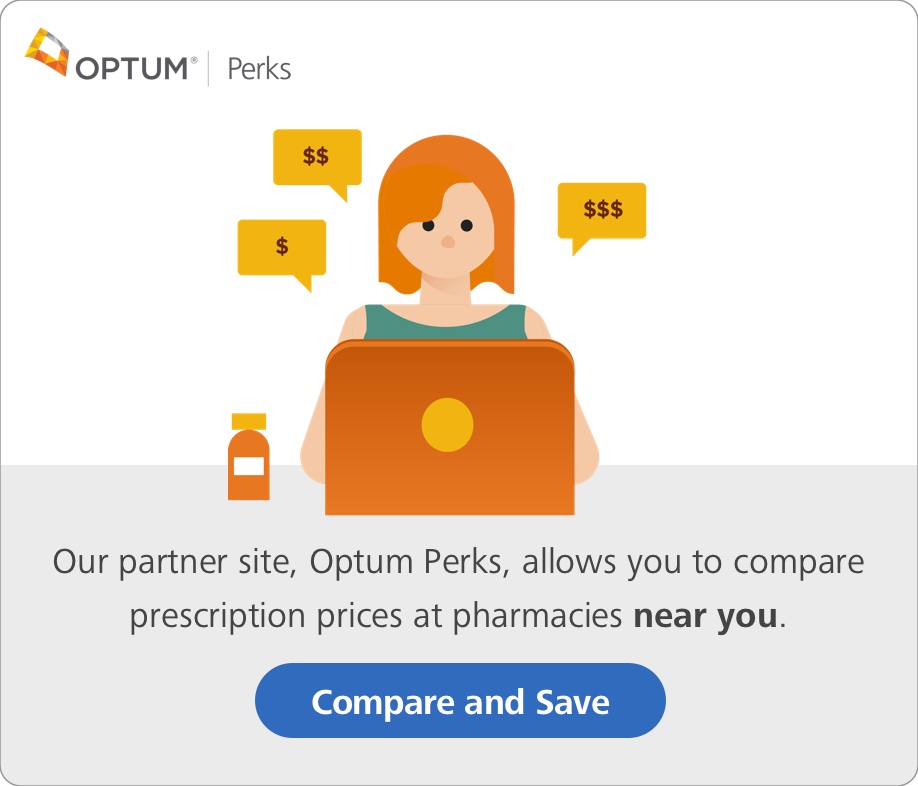Omeprazole Coupons and Discounts
Omeprazole treats gastroesophageal reflux disease (GERD), gastric ulcers, and duodenal ulcers. It works by reducing stomach acid. If you need this prescription medication but find it is not covered by your insurance, the omeprazole price will likely be around $30-$90 for thirty 20mg pills. However, omeprazole coupons can help significantly reduce this cost. Click ‘Get Omeprazole Coupon’ to print a coupon that can get you an omeprazole discount of 20-70% at most pharmacies. You can use this coupon like an omeprazole discount card every time you fill your prescription. Don’t forget to keep checking back on this page, as we’ll share any additional omeprazole rebates or other forms of omeprazole patient assistance as they become available.
We're sorry, there is no manufacturer coupon currently being offered. Since we're always on the hunt for the latest manufacturer offers, please be sure to check back at another time.
Save up to 50% Retail Price
Print Your Coupon- Discount program for drugs similar to how the AAA card gets you discounts on motel rooms.
- Ideal for people with no drug coverage, self-employed, donut hole seniors.
- Accepted at all the big chains (Walgreens, CVS, Rite Aid, Etc.) and most independent pharmacies. Not to be combined with insurance, great for drugs not covered by your plan.
Other coupons related to: Buying Group Specials
Omeprazole Information
Read information about Omeprazole below to learn about its common uses. If you have questions about this medicine, please consult with your doctor or pharmacist and be sure to inform them of all the medications you are currently taking.
Treating heartburn or irritation of the esophagus caused by gastroesophageal reflux disease (GERD). It may also be used for short-term treatment of ulcers of the stomach or small intestine. It may also be used with certain antibiotics to treat ulcers of the small intestines and to help prevent them from coming back. It may also be used to treat conditions that cause your body to make too much stomach acid (eg, Zollinger-Ellison syndrome). It may also be used for other conditions as determined by your doctor. This medicine is a proton pump inhibitor (PPI). It works by decreasing the amount of acid produced in the stomach.
- Use this medicine as directed by your doctor. Check the label on the medicine for exact dosing instructions.
- An extra patient leaflet is available with this medicine. Talk to your pharmacist if you have questions about this information.
- Take this medicine by mouth at least 1 hour before a meal.
- Swallow this medicine whole. Do not break, crush, chew, or open this medicine before swallowing.
- If you have trouble swallowing the capsule, add 1 tablespoon of applesauce to an empty bowl. Open the capsule and empty the pellets onto the applesauce. Mix the pellets with the applesauce and swallow the mixture at once, followed by a glass of cool water. The applesauce used should not be hot and should be soft enough to be swallowed without chewing. Do not chew or crush the pellets. Do not store the mixture for further use.
- You may take antacids while you are taking this medicine if you are directed to do so by your doctor.
- Continue to take this medicine even if you feel well. Do not miss any doses.
- If you miss a dose of this medicine, take it as soon as possible. If it is almost time for your next dose, skip the missed dose and go back to your regular dosing schedule. Do not take 2 doses at once.
- Ask your health care provider any questions you may have about how to use this medicine.
- All medicines may cause side effects, but many people have no, or minor, side effects.
- Diarrhea; gas; headache; nausea; stomach pain; vomiting.
- Severe allergic reactions (rash; hives; itching; difficulty breathing; tightness in the chest; swelling of the mouth, face, lips, or tongue; unusual hoarseness); bloody stools; bone pain; change in the amount of urine produced; chest pain; dark urine; fast, slow, or irregular heartbeat; fever, chills, or sore throat; red, swollen, blistered, or peeling skin; severe diarrhea; severe stomach pain or cramps; swelling of the hands, ankles, or feet; unusual bruising or bleeding; unusual tiredness; vision changes; yellowing of the eyes or skin.
- This is not a complete list of all side effects that may occur. If you have questions about side effects, contact your health care provider. Call your doctor for medical advice about side effects. You may report side effects to FDA at 1-800-FDA-1088. You may also report side effects at http://www.fda.gov/medwatch

